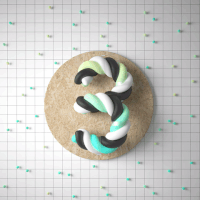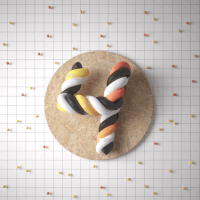
All kids who reverse their b’s & d’s or their numbers have dyslexia or dyscalculia.
Failure to read or do maths often has more to do with the nature of teaching rather than the nature of the child. A child will not develop dyslexia or dyscalculia because he has trouble reading.
Multi-sensory exercises can help struggling students strengthen their brain activity, but this will not cure their dyslexia or dyscalculia.
It is also not a dietary problem. No amount of healthy green juices or other wholesome foods will reverse the conditions, but that does not mean you can eat unhealthily! In fact, a healthy diet can improve your concentration and may help you control the conditions, so keep eating those greens, its and seeds!

Dyslexia and dyscalculia can be outgrown.
Nope. Dyslexia and dyscalculia are life-long differences in the way the brain processes information and unfortunately can be gained later in life from a brain injury, stroke, dementia or trauma.

Dyscalculia and Dyslexia are really about anxiety.
Dyslexia/dyscalculia may cause anxiety but anxiety cannot cause dyslexia/dyscalculia. Though anxiety will affect a child or students abilities to perform in or out of class, it is not the anxiety that causes their dyslexia or dyscalculia, it is, in fact, the opposite. Dyscalculia is a difference in the way the brain processes information and can only be exacerbated by anxiety, which is why it is key to build up confidence in learners with the condition.

You need glasses!
People with dyslexia/dyscalculia do not “see” things backwards; after the visual information is received from the eye the brain processes this information and it is at this point where dyslexia and dyscalculia come into play.

You are just lazy!
This is the most frustrating thing to hear. The lack of awareness of dyslexia or dyscalculia amongst educators and parents can result in this misbranding of the child as lazy and this achieves nothing for the child’s progression other than discouragement.
The findings of MRI studies provide evidence that people with dyslexia and dyscalculia are not poorly taught, lazy, or stupid, but have an inborn brain difference that has nothing to do with intelligence and actually have perfectly normal and highly active brains.
If students with dyslexia or dyscalculia do not receive the right type of intervention and/or classroom accommodations, they often struggle in school—despite being bright, motivated, and spending hours on homework assignments. In almost all cases, kids with dyslexia and dyscalculia are actually working much harder than their peers and should be acknowledged for doing so.
I find it disappointing that when I look up help for adult dyslexia that it is mostly for children. When it is for adults very little help is offered. Is there any place that I can at least get tips for how to better live with this?
Hi Joseph,
Thanks for the comment. You’re quite right there certainly is so much more articles on supporting children with dyslexia, it seems the adults get a little forgotten. This is a great shame as a lot of people are being diagnosed quite late in life. I’ll see to it myself that we publish something on the topic… leave it with me and i’ll get back to you as soon as i can. For now there are a few articles on https://blog.dybuster.com/ that could be relevant for you as we cover dyslexia in general here.
I hope this helped 🙂